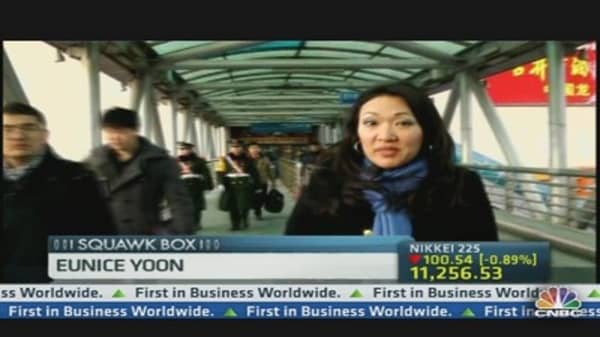At the Lai Tai flower market in Beijing, florist Chen Jun can already sense that the Year of the Snake is going to take a bite out of his business.
The Lunar New Year holiday is usually his busiest -- and most profitable. For the past eight years, orders from government departments would pour in for extravagant bouquets earmarked for state events.
Not this year.
"Normally, there would be a lot of military officers coming for flowers here," he said pointing to the empty aisles at the market. "Government orders have dropped 20 to 30 percent."
For the Chinese, Lunar New Year is like Christmas, Thanksgiving, and New Year's rolled up into one. A record 3.41 billion trips are expected to be made in 2013 during the travel rush as hundreds of millions get on trains and planes carrying gifts for their families.
But the Year of the Snake promises to be different for government officials.
China's new leaders, who officially take the helm in March, have been sensitive to growing criticism of government corruption. Incoming president Xi Jinping has promised to go after tainted officials no matter the rank. He has also called on Communist Party cadres to scale back on excess. On the list of items officers will have to survive without: elaborate flower arrangements, red carpets, and lavish banquets. Even the national liquor Moutai, a traditional toasting drink during festive events, is on the hit list.
(Read More: Gift-Giving Crackdown Hits China Luxury Retailers )
Yin Xiangang said his liquor shop is in a dry spell and it could last all year. His sales of Moutai are down 40 percent. "All the government departments are drinking less," he lamented. Kweichow Moutai, one of the best known premium spirits producers, lost $2 billion, or 5.5 percent of its value, on the Shanghai bourse immediately after the new regulations were announced last December.
Despite evidence some bureaucrats are tightening their belts, many in the public are cynical about how much is PR spin and how much is a real attack on corruption.
Investigative blogger Zhu Ruifeng uncovered a sex extortion ring that has led to the ouster of more than ten government officials. Instead of getting rewarded, he's been harassed. Zhu said the police hounded him at his home and called him in for questioning -- searching for information on his sources. "The last few leaders all promised to fight against corruption but when we wanted to root it out, we were always threatened and stopped," he said. "Xi Jinping should take action and not only talk big."
China watchers say any dramatic action could erode loyalty to Xi within the system.
After the Lunar New Year, officials in the southern province of Guangdong plan to start a pilot project that would require government officials to report their assets, investments, and employment status of their spouses and children. The experimental program is aimed at fighting corruption.
Jiang Chunqiao, another florist at the Lai Tai market, said the drop-off in his personal sales is worth the overall anti-corruption effort by the government. "I think the waste ban should not be lifted," he said. "[Corruption] should be brought under control."




